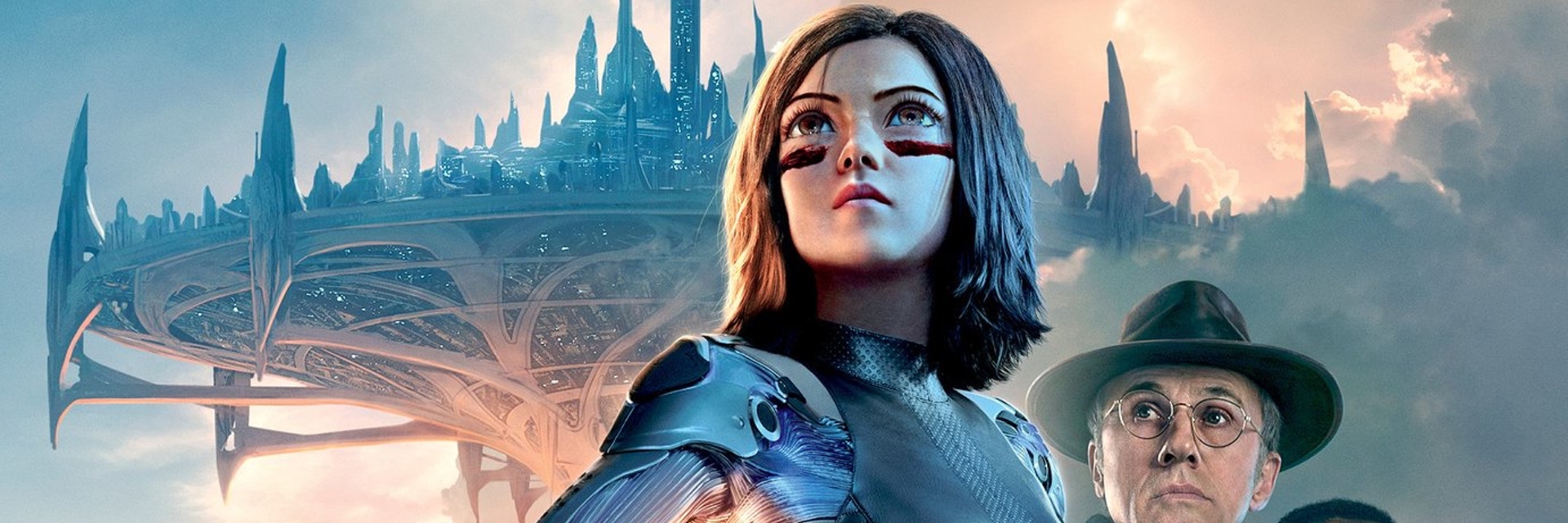American adaptations of Japanese properties have a tenuous history that is certainly earned, but there’s points in Alita: Battle Angel where director Robert Rodriguez manages to delicately balance the intricacies and technicalities of an expansive lore with a sense of honesty and grounded emotion to create a tone that mirrors the playful yet serious nature that many Manga and Anime possess. It doesn’t always work, and more often than not scenes will either be needlessly dense with plot contrivances or feature painfully ham-fisted attempts at soulfulness, which do have a tendency to bleed over into the more well constructed scenes given how dense much of the film is. Still, there’s more than enough in the film to leave you satisfied, with a big focus on the visuals with to interestingly stylised designs, flashy choreography, and nicely reserved camerawork, and a distinct effort made to create a rounded lead with depth and motivations that pays off to an impressive degree.
Based off of the manga Gunnm the film follows the exploits of Alita, a cyborg found in a scrapheap and reconstructed by Dr. Dyson Ido. The bare bones elements of the story work fine with a nice sense of progression between plot points, allowing for a good deal of character development and for actions scenes that make sense within the context of the story. Stemming from it being an adaptation it does suffer from an excess of subplots and characters, especially near the end of the film when things should be wrapping up, and while this doesn’t ruin the better parts of the story it does present them in a poorer juxtaposition. The writing is spotty as well; it works in small doses but as scenes drag on the quality of the writing dips noticeably, with the film doing a good job in avoiding long expository monologues and showing the audience the world but many of the dialogues are overly repetitious. Stylistically, the design of the world is handled beautifully, with the film using lots of bright colours, blended styles of architecture, and a variance of designs for the cyborg tech that makes the world feel fresh even if the story feels familiar. The effects themselves are a mixed bag; Alita looks great, with her Anime eyes capturing a distinct look for the character, and the supplementary digital effects for dialogue scenes work great, but many of the fight scenes expose the effects as being overly fluid and clearly focused on the tiny moving parts of each character as opposed to the bigger picture.
It feels like they got away with a lot more considering nearly every combatant in the film is a cyborg, because despite being clearly intended for a wide audience there is a lot of relatively gory violence in this movie. Granted a fair bit of it occurs off-screen and there’s almost no blood, but the cyborg fights are are brutal, well photographed affairs that do a great job selling the impact and effect of each blows. Limbs are torn of with wanton abandon, albeit all mechanical ones, and it’s clear that Rodriguez is pushing the limits of the rating. The fight scenes themselves are mostly good, though a fair few of them drag on too long to be pressing and people tend to recover a few too many times. The actors also do a great job in selling the urgency, especially Rosa Salazar and Christoph Waltz. Salazar’s performance has a great deal of range, and even during the most hackneyed parts of the script she’s still genuine, evoking a palpable sense of innocence that doesn’t make anything around her awkward. Waltz isn’t given as much to work with, but still turns in a commendable performance. Jennifer Connelly and Mahershala Ali don’t do their roles any favours but their performances are still serviceable if a touch flat.
Alita: Battle Angel isn’t a particularly unique film, and aside from the strong characterisation of the lead there isn’t much else that’s particularly defining to it, but it does at times nail the tone of it’s source material, builds a fairly interesting world in a fairly interesting manner, and it’s properly paced enough solidly entertaining.
Promotional Poster courtesy of 20th Century Fox.






